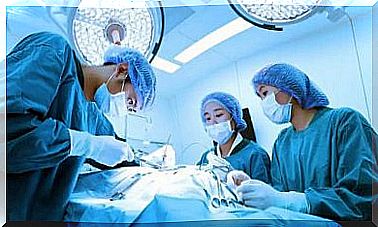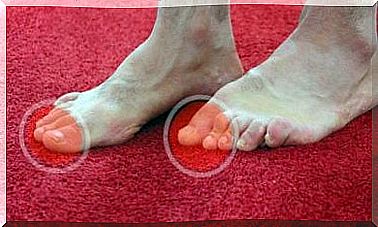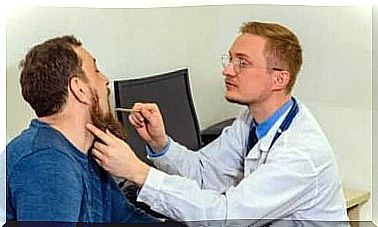Breast Pain After Implant

Breast pain after implantation worries many women. Of course, any surgery has its risks, benefits and side effects. Operations are invasive procedures that involve pain. The same is true when it comes to breast surgery, even if they are only for aesthetic purposes.
In recent years, breast surgery has become one of the most common cosmetic surgeries. We are not just talking about breast enlargements, but also about cuts, repairing malformations and even retouching the shape of the nipple.
About 1 in 400 women has breast implants. This is a very large number that demonstrates that many women may have questions about this type of procedure. Therefore, in this article, we will talk about breast pain after plastic surgery.
Why does breast pain appear after the implant?

Of course, this pain will depend on the intervention to which a person is subjected. To understand why pain occurs, we will use the example of breast augmentation without lifting. This is an operation that takes place under general anesthesia and usually takes about two hours.
Breast augmentation without lifting involves two incisions under the breasts. The latest techniques allow surgeons to cut along the contour of the nipple or along the armpit. What people need to understand is that all these areas contain sensitive nerves.
To insert breast implants, surgeons must make room under the mammary gland – like a pocket. So they have to cut the tissue. Most prostheses are implanted under the pectoralis muscle. This is somewhat more aggressive, but allows women to breastfeed later.
Whatever the case, as I mentioned, the whole area is full of nerves. Incisions can alter the nerve endings responsible for sensitivity. Therefore, it is normal for breast tenderness to change after surgery.
In the first weeks after surgery, women may experience a change in breast tenderness. However, most women regain their normal sensitivity over time as their nerves gradually regenerate.
Despite this, it often happens that women experience breast pain after the implant, as well as cramps or stings. Moreover, we must mention that the skin must stretch to mold to the shape of the implant. Muscles and tissues need to heal, so it is normal for pain to occur.
Many women claim that after breast augmentation, it is difficult for them to perform daily tasks. For example, they cannot dress or arrange their hair, especially if the implant has been inserted under the muscles. However, other women say the pain is bearable.
What you can do to relieve pain

We should emphasize that breast pain after plastic surgery is a physiological and natural thing during tissue readjustment. Moreover, the incisions and seams must heal properly. As you can imagine, this process takes time.
However, if your breast pain lasts a long time, you should consult your doctor. Maybe there were some complications. Whatever the case, plastic surgeons recommend regular check-ups after surgery.
To improve the recovery process, there are simple steps you can implement. The first is to rest as long as your doctor recommends. In general, you should avoid any effort, as well as intense sports. In fact, doctors forbid training for the upper body for at least a month after surgery.
It is best to sleep face up and avoid any pressure on the area. You should not massage your breasts or push them. Similarly, you should wear a special bustier to provide proper breast support.
In some cases, especially after surgery, it is a good idea to take painkillers for breast pain. Whatever the case, you should talk to the surgeon who operated on you first.









